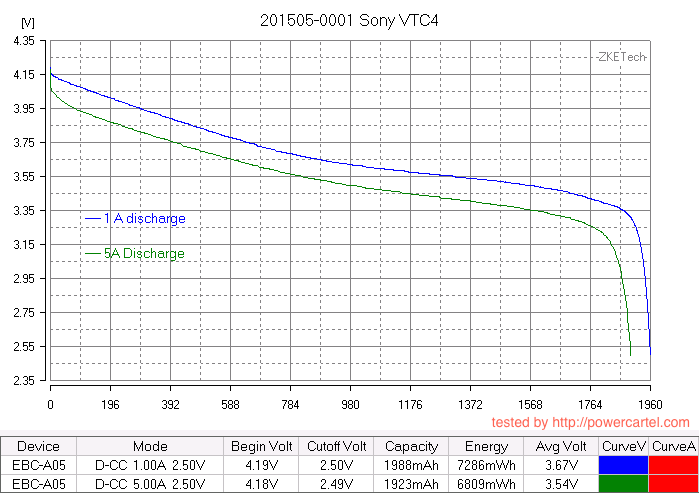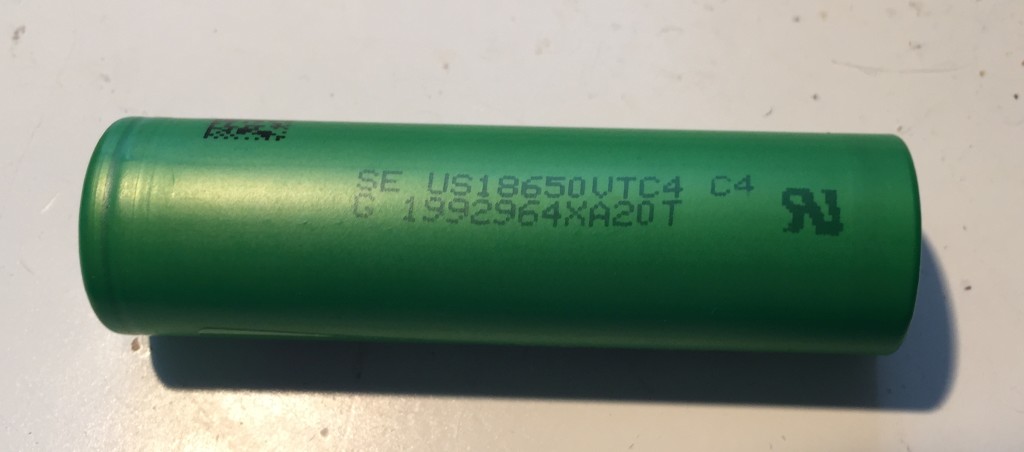Randy, who imports and sells 18650 cells through the Energia Dynamics shop on EBay, was kind enough to send me a dozen batteries to test.
For my tests, I started with a single Sony VTC4 cell he provided. This cell is capable of 30A discharges, something I wasn’t able to test on my ZKE EBC-A05 battery tester, since it is limited to 5A discharge, but tests at lower current still provide useful baselines.

The measured discharge capacity at 1A is very close to the rated 2000mAh capacity of the cell, when measured at a 0.2C (~0.4A) discharge. Close enough that I’d say this cell hits its capacity specs within the uncertainty of my testing setup.
There is an interesting phenomenon with these cells. Like most LiIon cells, their internal resistance drops with rising temperature. One result of that resistance drop is that the magnitude of the voltage drop due to resistance declines as well. This means more current can flow before the discharge termination voltage is reached. The thing is that higher currents generate more heat, and so cell temperatures are higher at higher discharge rates. The combined effect is that discharge capacity actually goes up somewhat at high discharge rates. The 5A limit of my test gear isn’t enough to show this effect. 10A may not be enough either, but at 20A, according to the Sony datasheets, the discharge capacity is higher than the 10A capacity. For high-capacity LiIon cells, this effect doesn’t come into play within the rated operating range of the cells, the discharge capacity at higher discharge currents is somewhat lower than at lower currents. This is why pretty much all lithium ion cells need to be engineered and managed for safetey, because, left unchecked, it leads to thermal runaway.
I now have some ZKE EBC-A10 testers that are capable of 10A discharges. I plan to do additional tests at higher current. When I do, I’ll update this page with results.

Hello, my friend. According to the picture on your website, I doubt that there is something wrong with the SONY battery VTC4 in your picture.